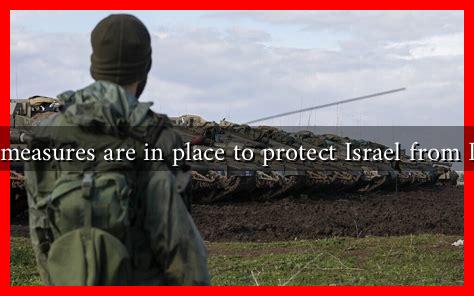-
Table of Contents
What Security Measures Are in Place to Protect Israel from Iranian Strikes?
Israel’s geopolitical landscape is fraught with tension, particularly concerning its relationship with Iran. The Islamic Republic has long been viewed as a significant threat to Israel’s national security, primarily due to its nuclear ambitions and support for militant groups like Hezbollah and Hamas. In response, Israel has implemented a multi-layered defense strategy designed to mitigate the risks posed by potential Iranian strikes. This article explores the various security measures in place to protect Israel from Iranian aggression.
Missile Defense Systems
One of the cornerstones of Israel’s defense strategy is its advanced missile defense systems. These systems are designed to intercept and destroy incoming missiles before they can reach their targets.
. Key components include:
- Iron Dome: This system is primarily used to intercept short-range threats, such as rockets fired from Gaza. It has a reported success rate of over 90% in intercepting incoming projectiles.
- David’s Sling: Designed to counter medium- to long-range threats, David’s Sling is capable of intercepting missiles with a range of 40 to 300 kilometers, making it effective against Iranian missiles.
- Arrow System: This is a long-range missile defense system specifically developed to intercept ballistic missiles. The Arrow 3 variant is designed to target threats outside the Earth’s atmosphere, providing an additional layer of security.
These systems work in conjunction to create a multi-tiered defense network that significantly enhances Israel’s ability to respond to missile threats from Iran.
Intelligence Gathering and Cybersecurity
Intelligence plays a crucial role in Israel’s defense strategy. The country invests heavily in intelligence-gathering operations to monitor Iranian activities and detect potential threats before they materialize. Key aspects include:
- Human Intelligence (HUMINT): Israel employs operatives to gather information on Iranian military capabilities and intentions.
- Signals Intelligence (SIGINT): Advanced technology is used to intercept communications and electronic signals from Iranian military units.
- Cybersecurity Measures: Israel has developed robust cybersecurity protocols to protect its critical infrastructure from Iranian cyberattacks, which have become increasingly common.
In 2020, for instance, Israel reportedly thwarted a significant cyberattack from Iran aimed at its water supply systems, showcasing the importance of cybersecurity in national defense.
Military Preparedness and Alliances
Israel maintains a highly trained and technologically advanced military, which is essential for rapid response to any Iranian aggression. Key elements include:
- Regular Military Drills: The Israel Defense Forces (IDF) conduct frequent drills simulating various attack scenarios, ensuring that troops are prepared for any eventuality.
- Strategic Alliances: Israel has strengthened its military alliances, particularly with the United States. Joint military exercises and intelligence-sharing agreements enhance Israel’s defensive capabilities.
- Preemptive Strike Capability: Israel has a history of conducting preemptive strikes against perceived threats, as seen in the 1981 Osirak nuclear reactor strike in Iraq.
These military strategies ensure that Israel remains vigilant and ready to respond to any Iranian threat.
Public Awareness and Civil Defense
In addition to military and intelligence measures, Israel places a strong emphasis on public awareness and civil defense. This includes:
- Public Education Campaigns: Citizens are educated on how to respond during missile attacks, including the use of bomb shelters and emergency protocols.
- Emergency Services: Israel has a well-coordinated emergency response system that can quickly mobilize in the event of an attack.
- Community Resilience Programs: Initiatives are in place to ensure that communities are prepared and can support each other during crises.
These measures not only enhance national security but also foster a sense of resilience among the population.
Conclusion
Israel’s multifaceted approach to security against Iranian strikes encompasses advanced missile defense systems, robust intelligence operations, military preparedness, and public awareness initiatives. By integrating these elements, Israel aims to create a comprehensive defense strategy that not only protects its territory but also ensures the safety of its citizens. As tensions in the region continue to evolve, Israel’s commitment to enhancing its security measures remains unwavering, reflecting the complex and dynamic nature of its geopolitical landscape.
For more information on Israel’s defense strategies, you can visit The Jerusalem Post.





